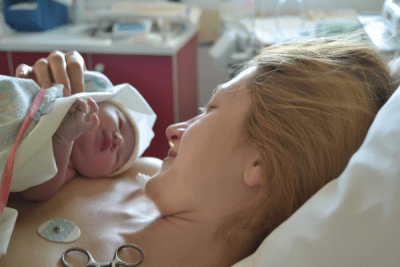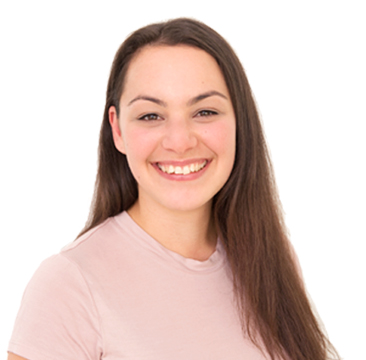
Giving birth to your baby is a momentous event, particularly if it’s your first child. It is your initiation into motherhood, a rite of passage and you will be entering into unfamiliar territory. You may not have thought about just how big this will feel, or perhaps you’ve been thinking about the big day obsessively with equal amounts of curiosity, trepidation or uncertainty.
Much of our thoughts and energy during pregnancy go toward eating well, exercising and preparing for the days and months after the baby’s arrival, but it is equally important to consider how you can prepare to have a good labour and birth on this momentous day.
With so many opinions and different birth stories to hear, it can be difficult to know who or what to trust and how to feel confident about giving birth to your baby. Navigating this unfamiliar territory doesn’t have to be arduous, especially when there are experienced guides known as doulas or birth attendants. A guide to help you with birth preparation, creating a birth plan and gathering a good support team during pregnancy and birth, so when the big day arrives and you first greet your newborn babe, it can be the best experience it can possibly be!
What is a Doula?
A doula is another word to describe a birth attendant, birth coach or birth support companion. She offers guidance and information as well as emotional and physical support.
A Doula will help you and your partner prepare for birth by giving you tips and tools for effective labour, help you understand what to expect when you are in hospital and assist you to navigate your way through risk management. They also work with you to create a plan for the kind of birth experience you would like to have and offer reassurance for when things don’t go to plan, bringing a calming presence to what can potentially be a confusing time.
Doulas add to a positive birth experience where birthing women feel safer, more informed and more aware of birth choices and the implications of these choices.
Why do I need a Doula?
Most Australian woman have fragmented maternity care and see multiple people across the pregnancy and birth journey. This can leave some women feeling unsupported and fearful about birth because they haven’t developed a relationship with a trusted guide, who they can rely on to assist and support them during the physically and emotionally intense experience of giving birth.
A good Doula is respectful of the demanding roles that obstetricians and midwifes have in the birth process. They understand that hospital midwives and medical staff can be weighed down by paperwork, protocols and safety during the birth, which can sometimes mean they have less time for the emotional, practical and physical care of birthing women.
By having a Doula you are filling in the gaps and giving yourself consistency of care and an opportunity to develop a supportive, trusting and educational relationship which has multiple benefits for you, your support team and family.
Does a doula need special training? Are they qualified to provide advice?
Anyone can call themselves a doula, so it is important to check that your doula has been trained by a reputable and experienced person or organisation. It is also important to remember that doulas cannot give you medical advice or diagnose and assess your condition. This is the job of your GP, medical specialist or midwife.
A doula’s role is to educate and support you in birth preparation through to labour, delivery and immediately post-partum. It is always best to engage a trained birth attendant doula. Our FGHG birth attendants have been trained with one of Australia’s most experienced childbirth educators and counsellors, Rhea Dempsey.
What happens at each appointment with my FGHG Doula?
You can engage a doula to attend your birth at any stage of your pregnancy but it is ideal to establish the relationship a few months before the baby is due. This allows time for you to get to know each other and feel comfortable and confident with your birth attendant.
Doulas at Fertile Ground Health Group are also massage therapists and many women choose to have regular pregnancy massage to further strengthen the relationship, build trust and to support a positive labour and birth. FGHG birth attendants can also recommend who to see when you need help with common ailments during pregnancy and what kind of support you might need post-natally for birth recovery, breastfeeding and nutrition.
At the initial 30 minute meeting – you will get to know your practitioner, how they work, what to expect, costs, share your concerns and history and have your questions answered to make an informed choice.
At the Birth meeting – this is a comprehensive 2 hour meeting that is ideally done as early as possible in the pregnancy because it is all about developing the relationship, establishing the birth team and bringing all interested parties together – i.e. partner, family and other support people, anyone who is attending the birth.
You will prepare a birth plan which talks you through all aspects of what to expect at the birth, which will allow you to get clear about your birth preferences and be more informed about the times when decisions and choices need to be made about pain relief, vaccination, placenta and umbilical cord. You’ll also discuss where to park, medications and what food to bring as well as techniques to use during labour for active birth and optimal foetal positioning, birth preparation and resources you can use for any issue that arises.
Leading up to your due date you will have access to your birth attendant:
- With 24 hour on call period from 38 weeks until the birth of your baby
- Support for the full duration of active labour and the immediate period (1-2hrs) after your baby is born
- One post-natal visit at your home to ‘debrief’ after the birth
- Access to a “back up” birth attendant if needed
Having a trained birth attendant at your side to help you navigate unknown territory, support you and provide guidance ultimately gives you more confidence, reassurance and preparation for one of the biggest days in your life – the birth of your baby and the growth of your family.
More information about doulas at FGHG:
Fiona Harrison, FGHG Massage Therapist and Birth Attendant
Michelle Lowe, FGHG Massage Therapist and Birth Attendant

